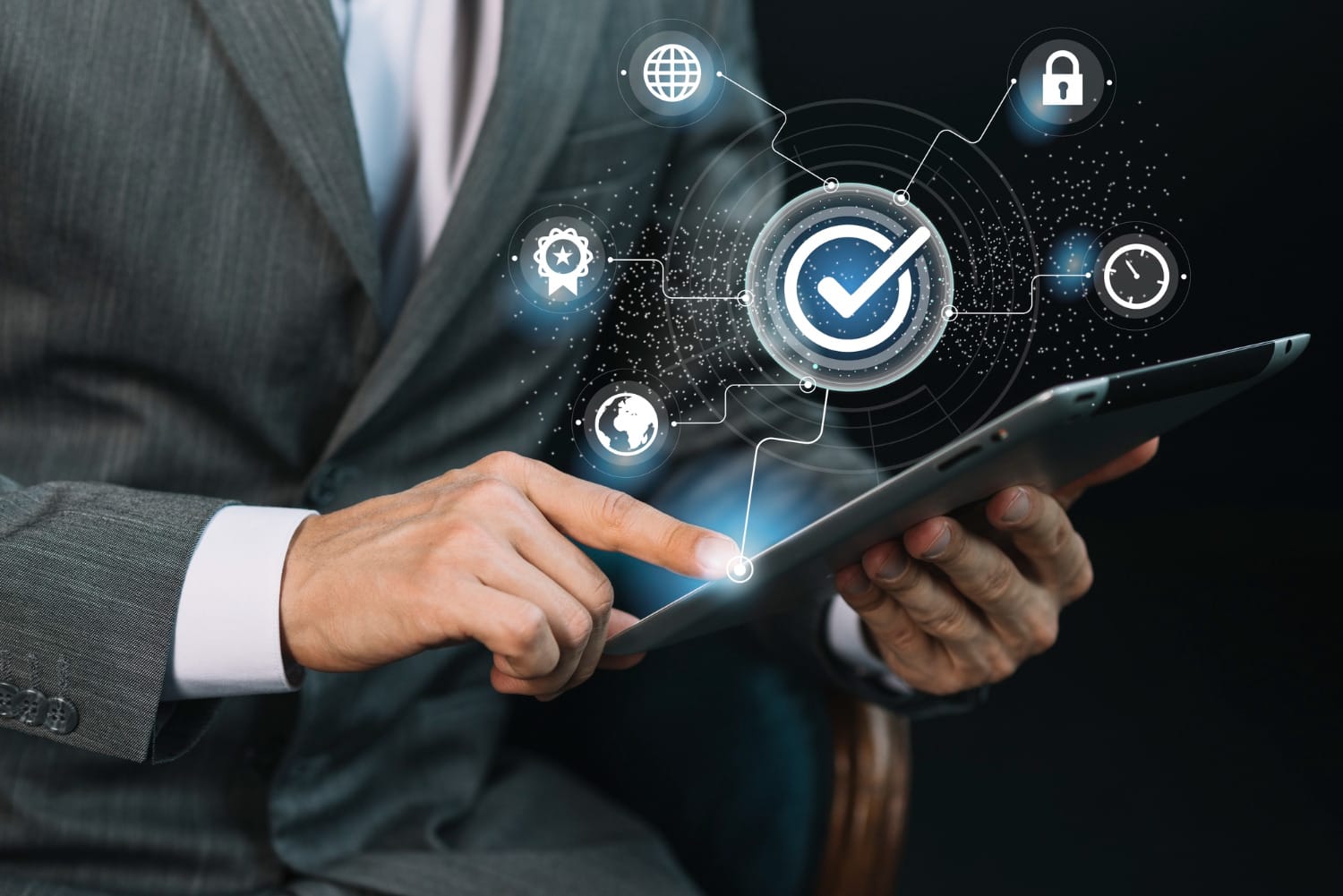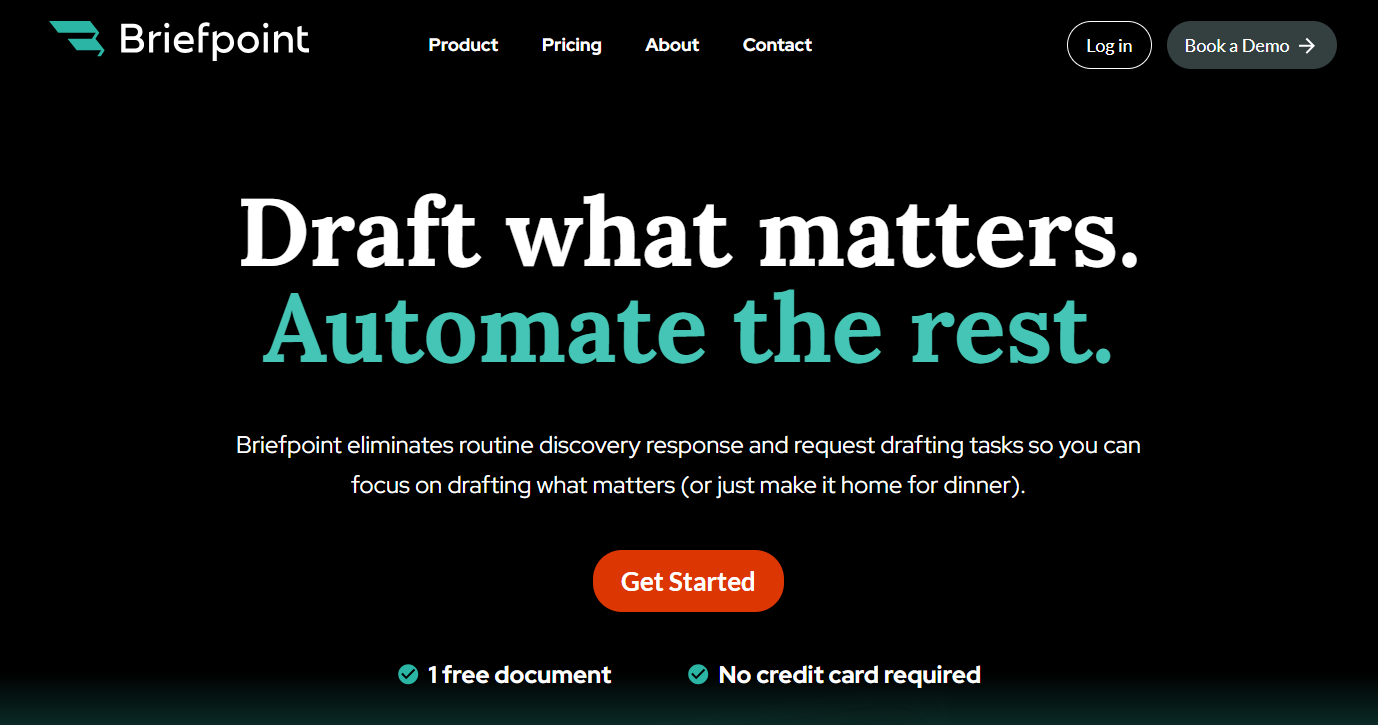New Technology for Law Firms: Legal Tech Trends of 2026
New Technology for Law Firms: Legal Tech Trends of 2026
Law firms aren’t working the way they used to—and that’s a good thing.
The old playbook of paper-heavy processes and manual workflows is being replaced with smarter, faster, and more connected systems. What once passed as efficient now slows firms down, especially with clients expecting speed, transparency, and digital convenience.
In 2026, top-performing firms are turning to legal tech not just to cut down on admin work but to rethink how legal services are delivered. From AI-driven research tools to automated discovery and virtual support, new technology is reshaping legal practice from the ground up.
Here’s a closer look at the tools and trends modern law firms are embracing and how they can help your team work smarter.

New Tech for the Legal Industry
If you’re looking to stay ahead of the curve, here’s a breakdown of the top legal technology trends shaping the industry in 2026.
1. Automation
Automation isn’t exactly new in the legal world. But what’s changing is how much smarter and more targeted it’s getting. It’s no longer just about filling out templates or flagging errors. Now, you can automate some of the most time-consuming parts of your workflow, like discovery.
Take Briefpoint as a prime example. If you’re still manually drafting responses to discovery requests, you’re spending hours on something that could take minutes.
Briefpoint automates the prep of discovery request and response documents, so you can stop getting bogged down in repetitive tasks and focus on the work that actually moves your cases forward. You simply have to upload your discovery document, and Briefpoint’s AI will do most of the routine tasks.
Even better? With Briefpoint Bridge, you can send clients plain-English versions of interrogatories, collect their answers, and plug them right into your docs—no back-and-forth, no confusion, no wasted time.
If you want to learn more about Briefpoint, book your demo today!
2. Legal Case Management Software
Legal case management software brings your documents, deadlines, billing, and communication into one place. This makes it easier to stay on top of various legal processes without getting buried in busywork.
By reducing administrative tasks, these platforms help enhance productivity across your team. You’ll spend less time tracking down case details and more time focusing on the legal work that matters.
Here are a few tools many firms are using today:
- Clio: A cloud-based solution that covers case tracking, secure communication, and billing—all designed to keep your firm running efficiently from anywhere.
- MyCase: Combines case management and client engagement tools in one user-friendly system, streamlining everyday workflows and helping you stay organized.
- Smokeball: Focuses on automation and customization, offering tools for managing administrative tasks while adapting to the needs of different practice areas.
If your firm is juggling too many disconnected systems, case management software can give you more control and clarity without adding to your workload.

3. Artificial Intelligence
Artificial intelligence is quickly becoming the engine behind smarter automation in law firms. While automation handles repetitive tasks, AI takes it further—learning from data, adapting to patterns, and making informed decisions in real time.
In practice, that means AI isn’t just doing things faster. It’s doing them more intelligently. It can sift through thousands of pages of legal text, flag risks in contracts, highlight case law, and even predict likely outcomes based on precedent.
These capabilities are already transforming areas like litigation prep, regulatory reviews, and document analysis.
Thomson Reuters points out that AI is helping legal professionals reduce risk while making better decisions—something traditional automation alone can’t achieve. It’s not about replacing human judgment but improving how quickly and confidently that judgment can be made.
If your firm is already using automation for basic workflows, AI is the next step. Even small implementations, like using it for contract reviews or legal research, can help reduce bottlenecks and free up time for more complex legal work.
4. Litigation Management
Litigation moves fast, and without the right systems in place, it’s easy to fall behind. Between tracking deadlines, managing evidence, and keeping your team aligned, the process can get messy fast. Litigation management software helps bring order to the chaos.
These platforms are built to support every phase of a case. They centralize document management, make team communication easier, and even support case law research when you’re preparing for court or building arguments.
That means everything is accessible in one secure environment, which reduces the back-and-forth and helps your team stay focused.
Here are a few widely used solutions:
- Casepoint: Offers legal hold, data collection, and AI-powered analytics to help manage complex cases more effectively.
- Logikcull: Streamlines investigations and discovery with drag-and-drop uploads, advanced search, and secure collaboration tools.
- Everlaw: Blends document review, real-time collaboration, and smart search tools to help legal teams move through litigation efficiently.
5. Virtual Legal Assistants
Virtual Legal Assistants (VLAs) are becoming a practical support tool for law firms looking to reduce administrative burdens.
Powered by AI, these assistants handle everyday tasks like scheduling, reminders, time tracking, and basic client communication—tasks that often take up more time than they should.
VLAs operate around the clock and can manage multiple conversations or tasks at once, helping firms stay responsive without overloading staff. They’re especially useful for solo practitioners or small teams that don’t have the resources for full-time administrative support.
What sets VLAs apart is their ability to learn from interactions. Over time, they can adapt to a firm’s preferences, respond more accurately to client needs, and support smoother workflows.
For law firms looking to stay efficient without compromising on client service, virtual legal assistants are a smart, low-lift way to modernize daily operations.
6. Identity Management
Identity management has become a crucial legal tech trend in recent years, emphasizing the secure management of digital identities, sensitive data, and access controls within law firms.
By employing advanced solutions that handle user authentication, access rights, and activity monitoring, law firms are better equipped to detect and prevent unauthorized access to legal data.
Integrating biometric authentication methods, such as fingerprint scanning and facial recognition, offers a more secure alternative to traditional password systems.
Aside from increasing the security of legal documents and data, identity management software makes the client onboarding process smoother and more efficient.
Companies with emerging technologies in identity management software include:
- Okta: Offers a comprehensive identity and access management solution tailored for organizations, including law firms. Their platform facilitates secure, single sign-on access to a wide array of applications, enhancing security through multi-factor authentication (MFA) and adaptive security policies.
- OneLogin: Provides a unified access management system that is particularly beneficial for law firms needing to manage and secure employee and client access to legal applications and data. It features strong authentication, single sign-on, and user management capabilities.
- LastPass: Provides identity and access management solutions with a focus on password management and secure sharing of credentials and sensitive data within organizations, including law firms.
7. Client Data Protection
If you’re handling sensitive legal information, data protection isn’t optional—it’s expected. Clients trust you with confidential details, and any breach can seriously damage that trust and your firm’s reputation.
Modern data protection goes beyond firewalls and passwords. Law firms are now using advanced technologies to secure files, manage access, and detect threats before they become real problems. Here are a few areas to focus on:
- End-to-end encryption – Protects emails, messages, and documents in transit and at rest so only intended recipients can access them.
- Multi-factor authentication (MFA) – Adds a layer of identity verification to stop unauthorized access, even if passwords are compromised.
- Secure client portals – Lets clients upload or access documents without relying on risky email exchanges.
- Data loss prevention (DLP) – Helps monitor and control how sensitive information moves in and out of your system.
- Real-time threat detection – Uses AI to identify suspicious activity and stop breaches before they happen.
Keeping client data secure isn’t just about compliance; it’s about doing right by your clients. And with today’s tools, it’s easier to build strong, secure systems that support both privacy and productivity.
8. Smart Legal Contract Management
Smart legal contract management leverages blockchain technology to redefine the dynamics of drafting, executing, and enforcing legal agreements.
By embedding contract terms directly into code, smart contracts automate contract negotiation processes when predetermined conditions are met, thereby eliminating the need for manual intervention and making the whole process faster.
This legal technology minimizes the ambiguity and disputes that often come with traditional contracts. Moreover, this level of automation and security is particularly appealing for law firms that often deal with complex transactions, where the precise execution of contractual obligations is crucial.

9. Advanced Computing
Legal work generates an overwhelming amount of data. Advanced computing, especially technologies like quantum computing and AI-driven analytics, is opening the door to faster, deeper insights from that data.
While still emerging, these technologies are beginning to support legal teams in ways that weren’t possible just a few years ago. If your firm wants to stay competitive, it’s worth understanding what’s on the horizon.
Here’s how advanced computing is starting to impact the legal field:
- High-speed data analysis – Breaks down massive datasets in seconds, helping with legal research, contract analysis, and due diligence.
- Predictive analytics – Uses historical data to assess risk, model potential outcomes, and guide litigation strategy.
- Natural language processing (NLP) – Makes it easier to search across case law, statutes, or internal documents using plain-language queries.
- Real-time legal research support – Offers faster, more context-aware search results with fewer irrelevant hits.
- Fraud detection and compliance tracking – Flags anomalies in transaction records or client activity using machine learning models.
You don’t need a quantum lab to benefit from these advances. Many of them are already being integrated into legal tech. Understanding what they offer now can help you make smarter decisions moving forward.
10. Immersive Technology
Immersive technologies, including Virtual Reality (VR) and Augmented Reality (AR), are beginning to make waves in the legal field.
These technologies can be used for a variety of applications, such as recreating crime scenes in VR to aid in evidence presentation or employing AR for enhanced document examination.
VR or AR can help train legal departments by simulating various scenarios and legal environments. Lawyers can also use this legal tech to conduct negotiations without needing to meet face-to-face.
VR and AR are not new, but they are among the best legal technology trends as legal departments are seeing the benefits of using them. Here are several companies that cater to law firms looking for this tech:
- LegalVerse: Enables lawyers to create and navigate through 3D recreations of crime scenes, accident sites, or any relevant physical space for a case, providing a more engaging and comprehensive way to present evidence and case scenarios to clients or in court.
- CourtroomVR: Specializes in virtual reality solutions tailored for the legal industry, providing a unique way for lawyers to present cases and evidence. Their platform allows legal professionals to create immersive, 3D simulations of courtroom scenarios, evidence presentations, and witness testimonies.
- vLex Justis: Overlays digital information onto the physical world, allowing lawyers to interact with legal materials dynamically and engagingly.
Top Legal Trends to Watch Out For in 2026
The legal field is changing faster than ever, and not just because of new tools. Law firms are rethinking how they deliver legal services, manage teams, and respond to rising client expectations.
In 2026, the trends to watch go beyond software—they reflect a shift in how modern legal work gets done. Here’s what’s shaping the future of law this year:
- AI adoption with human oversight – More firms are using AI but pairing it with human review to maintain accuracy and trust.
- Alternative fee arrangements (AFAs) – Clients are pushing for flat fees and value-based pricing over billable hours.
- Focus on mental health and burnout – Legal teams are investing in better work-life balance and support systems.
- Flexible and remote work structures – Hybrid work is now the norm, with firms adapting policies to retain talent.
- Proactive compliance support – Firms are helping clients prevent legal issues, not just respond to them.
- DEI accountability – Diversity, equity, and inclusion efforts are shifting from statements to measurable action.
The most competitive firms in 2026 won’t just use better tech. They’ll think differently about how they serve clients, manage teams, and structure their businesses.
Make Discovery an Efficient Process With Document Automation
Document automation for lawyers was one of the most significant legal technology trends of 2024. Unsurprisingly, more law firms are seeing the benefits and hopping on the trend this year.

Let Briefpoint make the discovery process a breeze. With this tool, you can automate the preparation of discovery response and request documents, such as:
- Requests for Admission
- Requests for Production
- Interrogatories
Plus, Briefpoint Bridge takes the hassle out of collecting client responses. With Bridge, you can send interrogatories to your clients in plain English and then plug their responses directly into your document.
Discovery is one of the biggest bottlenecks in the legal process. Book a demo today and see how Briefpoint can make this phase a lot less time-consuming.
FAQs About New Technology For Law Firms
What is the biggest challenge facing law firms today?
One of the biggest challenges facing the legal profession today is managing rising client expectations while maintaining efficiency and profitability. Firms must balance quality service, data security, and faster turnaround times—often with limited resources and growing competition.
How will technology change in the future for lawyers?
Technology will continue to evolve toward smarter automation, AI-assisted research, and real-time collaboration. Future legal tech tools will help lawyers make data-driven decisions, reduce manual tasks, and better protect sensitive client data, ultimately allowing more time for strategic work and client engagement.
What software do law firms use?
Law firms use a range of legal tech tools, including case management software, document automation, time tracking, e-billing platforms, and secure client portals. These tools help streamline operations, manage caseloads, and protect sensitive client data.
The information provided on this website does not, and is not intended to, constitute legal advice; instead, all information, content, and materials available on this site are for general informational purposes only. Information on this website may not constitute the most up-to-date legal or other information. This website contains links to other third-party websites. Such links are only for the convenience of the reader, user or browser.
Readers of this website should contact their attorney to obtain advice with respect to any particular legal matter. No reader, user, or browser of this site should act or refrain from acting on the basis of information on this site without first seeking legal advice from counsel in the relevant jurisdiction. Only your individual attorney can provide assurances that the information contained herein – and your interpretation of it – is applicable or appropriate to your particular situation. Use of, and access to, this website or any of the links or resources contained within the site do not create an attorney-client relationship between the reader, user, or browser and website authors, contributors, contributing law firms, or committee members and their respective employers.